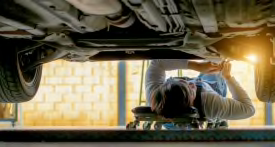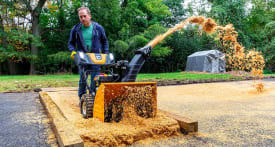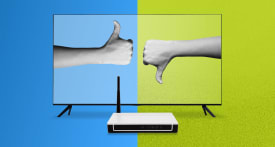If buying a new home isn't in the cards for you but you're itching for a change—a new kitchen, a dedicated work space—and need a lump sum of money to do it, now may be the time to tap the value you have in your house, especially if it's worth more than when you first bought it.
A common way to do this is by taking out a home equity loan. Another is by doing what's called a cash-out refinance, a type of new mortgage that monetizes the equity you have in your home, says Robert Heck, vice president of mortgage services for Morty, an online residential mortgage broker and consultant firm. Interest on these mortgages is typically lower than on home equity loans.
Whereas a regular refinance replaces your current mortgage with a new one for the same balance, a cash-out refinance replaces your mortgage with a new one for more than you presently owe, with the difference going to you in cash.
Rising real estate values have made cash-out refinances a useful tool for more people. In the second quarter of 2021, the average homeowner gained about $51,500 in equity. Homes in the West saw the largest bumps—in Idaho, $97,000; Washington, $102,900; Los Angeles, $116,300—according to figures by CoreLogic, a real estate industry research firm.
In the second quarter of 2021 alone, homeowners withdrew $54 billion in cash-outs, according to Freddie Mac, the Federal Home Loan Mortgage Corp.
Home lending pros recommend that you use the money you extract from a cash-out refinance very carefully. That includes paying for upgrades that increase a home's resale value; paying down more expensive debt, such as credit cards; or beefing up emergency or retirement savings.
"You should use the money only for a profitable purpose," says the Rev. Dr. Charles Butler, who helps run a nonprofit that offers housing counseling and other community empowerment programs and is based in New York City. You are ultimately going to need to pay the new, larger mortgage back.
A couple of caveats. While the process of applying for a cash-out refinance is basically identical to that of a regular refi, typically banks won't do it if you have less than 20 percent equity, says Scott Westfall, a real estate consultant and owner of CGP Real Estate in Virginia Beach, Va.
And you should expect to see some additional refinancing costs that you won't face with a regular refi. Nationally, the average closing costs for a single-family residential refinance were $3,398 last year, according to figures from ClosingCorp, a real estate industry data tracking firm. But cash-out refi lenders may impose slightly higher interest rates on the new loans, perhaps 0.125 to 0.25 percent more, than they do for regular refis.
Even so, a cash-out refinance might give you a lower interest rate if you bought your home when mortgage rates were much higher.
Consider a Refinance With Cash-Out If:
1. You have more than 20 percent equity in your home.
2. Your home's value has increased since you purchased the home.
3. You plan to use the funds to reinvest in the home or to pay down expensive debt, such as credit cards.
4. You can secure favorable new terms on a mortgage, like a lower interest rate and lower monthly payments.
—Additional reporting by Octavio Blanco
Editor's Note: This article also appeared in the February 2022 issue of Consumer Reports magazine.















